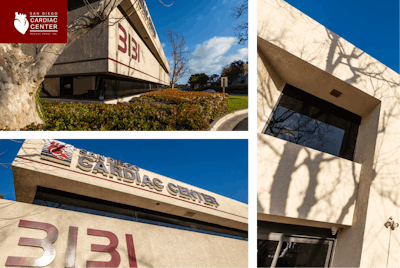Treating Dangerous Heart Rhythms
If you have heart rhythm problems, such as a racing heartbeat or very slow heartbeat, or your heart is not providing enough blood to your system, receiving an ICD in San Diego could be the advised treatment. This small medical device is implanted beneath your skin to monitor your heart rhythm and deliver electrical pulses when needed to trigger a healthy rhythm.
What Can an ICD Treat?
This advanced device can treat several heart conditions, including:
- Irregular heartbeat
- Rapid heartbeat
- Bradycardia (slow heart rate)
- Ventricular fibrillation (uncontrolled, irregular heartbeat)
- Atrial fibrillation
- Wolff-Parkinson-White syndrome (very fast heart rate)
- Heart block (symptoms of fainting)
- Heart arrhythmias
An ICD is not a pacemaker but monitors your heart rhythm, and when it detects an abnormal rhythm, it delivers a shock to the heart. This device can save you from cardiac arrest if you suffer from a life-threatening heart arrhythmia. The latest advances in technology have led to the development of these devices. The current versions function both as a pacemaker and a defibrillator. The device can record the electrical patterns of your heart to help your cardiac specialist with your treatment.

Compairing Traditional ICD and S-ICD
The most common type of ICD is about the size of a matchbox. It contains a miniature computer and a battery. These devices can monitor heart rate, shock the heart, and record information about your heart rhythm. For some patients, another ICD is appropriate, called an “S-ICD.”
An S-ICD, or Subcutaneous Implantable Cardioverter Defibrillator, is a type of ICD that is implanted under the skin and delivers high-energy shocks to regulate dangerous heart rhythms without the need for leads to be placed directly through the veins into the heart.

What is the Procedure of Having an ICD Implanted?
- Implanting an ICD is a minor surgical procedure. The process involves the use of local anesthetic and intravenous sedation to keep you comfortable.
- The procedure typically takes one to three hours, with some cases requiring an overnight hospital stay to ensure the device is functioning correctly.
- The ICD is inserted under the skin in the area beneath your collarbone.
- Leads (wires) are inserted through a vein, and with X-ray guidance, they are connected to your heart muscle.
- The other end of the lead is attached to the “pulse generator,” the part of the device responsible for delivering the shock.
- The leads are tested during the procedure to ensure they trigger a heart contraction properly.
- Once confirmed, the leads are connected to the device, which is programmed externally by your doctor to suit your specific condition.
- The entire procedure may take one to four hours to complete, and you should not experience any pain during the process.
What is the Recovery?
You will need to arrange for an adult to drive you home. You will be provided with full aftercare instructions, including how to take your medications. Most people return home after one night in the hospital. You may notice slight discomfort where the device was implanted for about 48 hours and may need pain medication.
How Long Will an ICD last?
These devices typically last for three to six years. You will have regular appointments to check your device and schedule surgery to replace it at the right time. Battery life depends on how often the ICD delivers therapy, so close monitoring helps ensure uninterrupted protection.
Why Choose Us for ICD in San Diego?
At San Diego Cardiac Center, we specialize in providing comprehensive care for patients in need of an implanted cardioverter defibrillator (ICD). Our board-certified electrophysiologists bring years of experience managing heart rhythm disorders, ensuring every patient receives precise, personalized treatment. From your first visit, our team is committed to making you feel comfortable, informed, and supported throughout your ICD journey.
We utilize state-of-the-art diagnostic tools and the latest ICD technology to deliver fast, accurate assessments and effective therapies. Our commitment to clinical research keeps us at the forefront of innovation in heart care. Choosing San Diego Cardiac Center for your ICD in San Diego means partnering with a trusted team known for compassionate care, technical excellence, and a patient-first approach.

ICD FAQs:
Can an ICD prevent sudden cardiac death?
Yes, ICDs are designed to detect and treat life-threatening arrhythmias, providing rapid defibrillation to restore normal heart rhythm and prevent sudden cardiac death.
How long does an ICD last?
The battery life of an ICD typically ranges from 5 to 15 years, depending on device settings, usage, and the type of device implanted. Regular follow-up appointments with a cardiologist are necessary to monitor battery status.
Can I travel with an ICD?
Yes, most people with ICDs can travel safely. However, it's important to inform security personnel about the device before going through airport security, as it may set off metal detectors.
Can I lead a normal life with an ICD?
In many cases, individuals with ICDs can lead relatively normal lives. However, certain precautions and lifestyle adjustments may be necessary, and activities that involve strong electromagnetic fields should be approached with caution.
What does it feel like when an ICD delivers a shock?
Patients describe an ICD shock as a sudden, brief jolt or thump in the chest. While it can be uncomfortable or startling, the shock lasts only a moment and is delivered to correct a dangerous heart rhythm and protect the patient from cardiac arrest.
How is follow-up care managed after ICD implantation?
After ICD implantation, patients require regular follow-up visits so their cardiologist can monitor device function, review recorded heart rhythms, and adjust settings if needed. These visits help ensure the ICD continues to work effectively over time.
Are there any medical procedures or devices that can interfere with an ICD?
Certain medical procedures and strong electromagnetic sources can interfere with ICD function. Patients should always inform healthcare providers about their ICD before undergoing imaging studies, surgeries, or other medical treatments.
